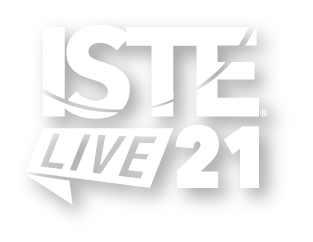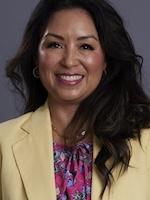

The Guide for an Equity-Minded Computer Science Education |
Listen and learn : Snapshot
Snapshots are a pairing of two 20 minute presentations followed by a 5 minute Q & A.
This is presentation 1 of 2, scroll down to see more details.
Other presentations in this group:
| Audience: | Chief technology officers/superintendents/school board members, Principals/head teachers, Technology coordinators/facilitators |
| Skill level: | Beginner |
| Attendee devices: | Devices useful |
| Attendee device specification: | Smartphone: Android, iOS, Windows Laptop: Chromebook, Mac, PC Tablet: Android, iOS, Windows |
| Topic: | Equity & inclusion |
| Grade level: | PK-12 |
| Subject area: | Career and technical education, Computer science |
| ISTE Standards: | For Education Leaders: Visionary Planner
|
Understand computer science education and how CSforCA takes action to increase equity, access, and inclusion for girls, low-income students and students of color.
Explore how to collect, analyze, and utilize data to inform problems, solutions, and measure growth.
Discover resources like the CS Equity Guide and professional learning opportunities for administrators, teachers, and counselors in computer science education.
Explore the challenges, opportunities, and consequences for implementing equity-minded K-12 computer science; and
Demonstrate useful examples of schools and district leaders that have connected equity and computer science implementation; and
Offer suggestions for additional resources to confront inequity in computer science education.
References
Brooks, C. & Elliott, K. (2017). Why Computer Science Education? A Toolkit for Parents. Retrieved from
https://www.edc.org/why-computer-science-education-toolkit-parents.
California Department of Education. (2015, December 4). LCFF Frequently Asked Questions. Retrieved
from https://www.cde.ca.gov/fg/aa/lc/lcfffaq.asp.
EdSource. (2017). Educating California’s Children and Youth: A Summary of the Findings from a Survey
of Voters about K-12 Schools. Retrieved from https://edsource.org/documents/Educating-Californias-
Children-Survey-Report-2017.pdf.
Goode, J., Flapan, J., & Margolis, J. (2018). Computer Science for All: A School Reform Framework for
Broadening Participation in Computing. In W. G. Tierney, Z. B. Corwin, & A. Ochsner (Eds.), Diversifying
Digital Learning: Online Literacy and Educational Opportunity (pp. 45-65). Baltimore, MD: Johns Hopkins
University Press.
Google Inc. & Gallup Inc. (2016). Diversity Gaps in CS: Exploring the Underrepresentation of Girls, Blacks
and Hispanics. Retrieved from http://goo.gl/PG34aH.
Ladson-Billings, G. (1995). Toward a theory of culturally relevant pedagogy. American educational
research journal, 32(3), 465-491.
Margolis, J., Estrella, R., Goode, J., Jellison-Holme, J., & Nao, K. (2017). Stuck in the Shallow End: Education,
Race, & Computing (2nd ed.). MIT Press: Cambridge, MA
Margolis, J., Ryoo, J., & Goode, J. (2017). Seeing myself through

Dominic Caguioa is a coordinator of instructional leadership support for the Los Angeles Unified School District’s (LAUSD) Instructional Technology Initiative (ITI). In this role, he leads the ITI team in designing and delivering professional learning around expansion of computer science, advancement of digital citizenship and implementation of the ISTE Standards, among many other edtech initiatives, to serve the over 40,000 educators and leaders of LAUSD. He also coordinates systemwide edtech efforts focused on localized implementation through direct support for school leadership teams, teacher leader and edtech coaches cohorts, and community learning for pilot schools. Caguioa’s work to expand computer science extends beyond LAUSD. He has been providing computer science fundamentals workshops in California through Code.org, bringing the core concepts of computational thinking and computer science to elementary schools to increase participation of underserved and underrepresented students in computer science. He also supports Code.org’s professional learning facilitators in the U.S., providing a "train the trainer" approach in preparing these facilitators to lead computer science fundamentals workshops. He’s a National Board Certified Teacher, and has also worked with the National Board for Professional Teaching Standards as a consultant. In his spare time, Caguioa is starting an education nonprofit in his home country, the Philippines, to provide edtech learning opportunities for kids and adults.

Sophia Mendoza is a proud alumni of the Los Angeles Unified School District (LAUSD), the nation’s second largest school district, where she’s served in multiple capacities, including as a bilingual teacher, coordinator, assistant principal and principal. She currently serves as director of the district’s Instructional Technology Initiative (ITI), overseeing the adoption of the ISTE Standards and implementation of computer science education and digital citizenship programs across LA Unified’s 1,300 schools. Mendoza has led instructional technology efforts districtwide for five years and head’s up the development of professional learning opportunities that leverage digital tools and model innovative instructional practices to create a personalized learning experiences for all learners. She also supports LAUSD educators in building leadership and cultivating learners who are ready for a growing digital world. Her work has been recognized by the Center for Digital Education and the Learning Counsel. She’s been honored as a NextGeneration Leader by EdScoop and CoSN, a 2018 Most Influential People in EdTech by Tech & Learning, an ISTE Impact Award honoree, Innovator of the Year for 2019 by Education Dive, and was recently named the Association of California School Administrators (ACSA) Region 16 Technology Administrator for 2020.